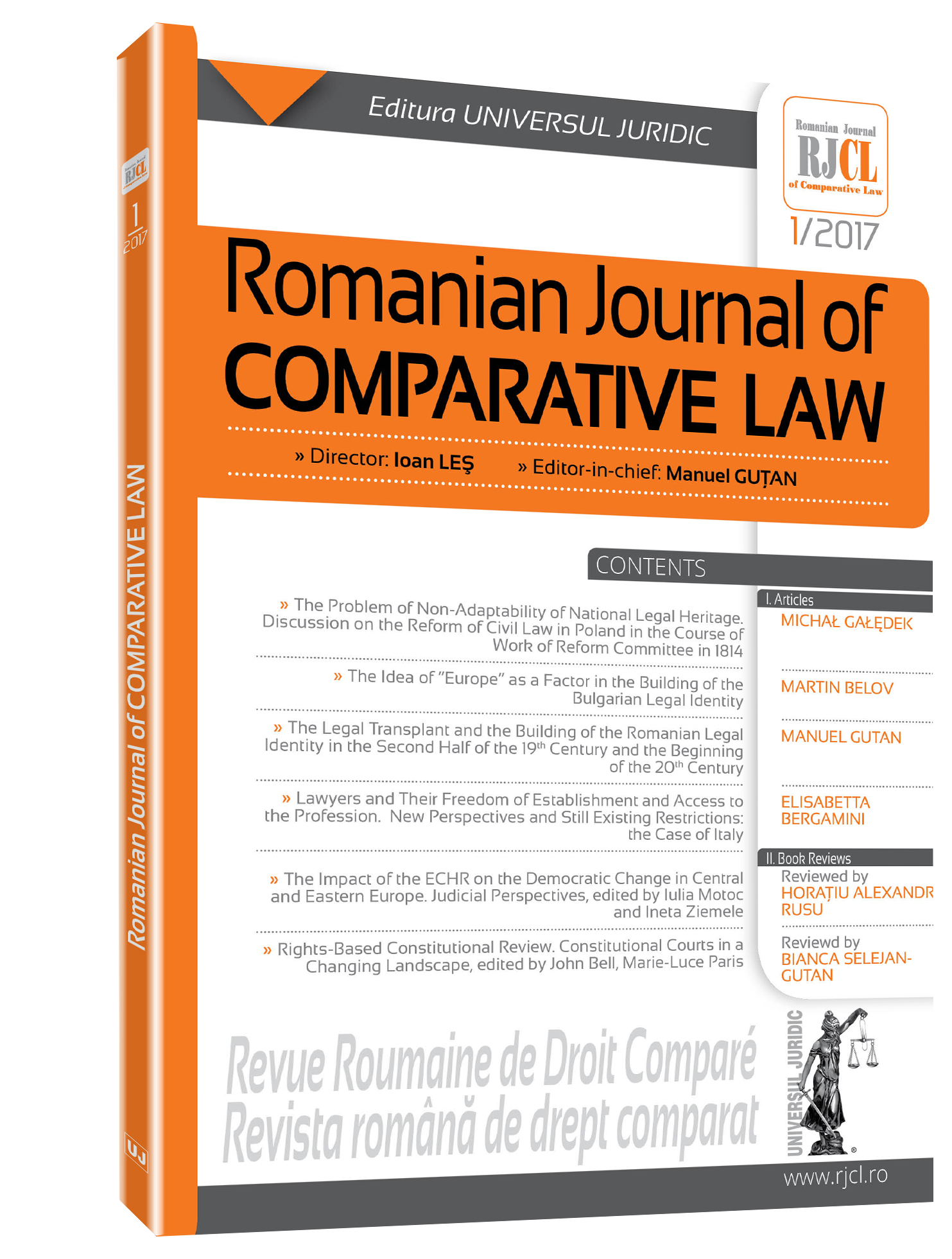The Problem of Non-Adaptability of National Legal Heritage. Discussion on the Reform of Civil Law in Poland in the Course of Work of Reform Committee in 1814
The Problem of Non-Adaptability of National Legal Heritage. Discussion on the Reform of Civil Law in Poland in the Course of Work of Reform Committee in 1814
Author(s): Michał GałędekSubject(s): Law, Constitution, Jurisprudence
Published by: Universul Juridic
Keywords: Kingdom of Poland; 19th century; national legal heritage; civil law; national code; adaptability; legal transplant;
Summary/Abstract: The article focuses on the issue of creation of a codification strategy for the Kingdom of Poland, a task which was undertaken by the Civil Reform Committee, appointed by tsar Alexander I, as part of its works conducted in connection with the change of the political situation in the wake of Napoleon's demise and with the establishment of a new state organism in union with Russia. The work limits itself to the analysis of the civil law reform, which was of central significance in the conducted works. After the 1813 takeover of Polish territories, Tsar Alexander I began to implement the plan to establish the Kingdom of Poland, which was to replace the Napoleonic Duchy of Warsaw.1 The Polish political elites were engaged to participate in these works. Both them and the Russian monarch himself intended to draw a thick line to separate themselves from the legal and political output of the Napoleonic era, largely modelled on French solutions implemented into the Polish law and political system by Napoleon by virtue of the 1807 constitution of the Duchy of Warsaw. As a result of the conducted reforms, French private law - that is, the civil code, the commercial code and the code of civil procedure, were introduced on the Polish territories. As regards the penal law, on the other hand, the heretofore binding codes were maintained - the Prussian one (in the North-Western part) and the Austrian one (in the South-Eastern part). They were all to be replaced by a national codification based on the Polish legal tradition from the pre-partition era. In order to work out the plan for the completion of tasks in connection with the legal and political reconstruction of the state, Alexander I issued a decree in May 1814, in which he appointed the aforementioned Committee, made up of more than a dozen representatives of the Polish political and legal elite. The axis of the debate they held was all along the problem of how to adapt the national legal tradition and output of the Republic of Poland to the standards which, in their opinion, a modern 19th century state should satisfy.
Journal: Revista Română de Drept Comparat
- Issue Year: 2017
- Issue No: 01
- Page Range: 7-38
- Page Count: 32
- Language: Romanian
- Content File-PDF

